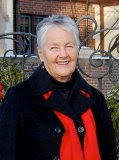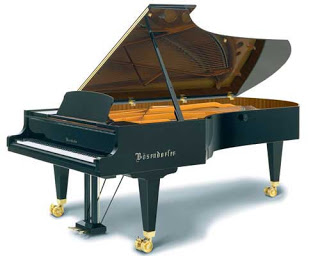So what is it that makes
a vacation meaningful anyway? I can’t honestly think of any vacation that I
have ever taken that was not meaningful. Some maybe were more meaningful than
others that is definitely true. I will have to focus on vacations of the last,
say, 50 years. Choosing from all the vacations of my lifetime is too
overwhelming. My memory just isn’t that good.
a vacation meaningful anyway? I can’t honestly think of any vacation that I
have ever taken that was not meaningful. Some maybe were more meaningful than
others that is definitely true. I will have to focus on vacations of the last,
say, 50 years. Choosing from all the vacations of my lifetime is too
overwhelming. My memory just isn’t that good.
I have had a few trips
abroad—the heart of Europe as well as remote places like the Orkney Islands off
the north coast of Scotland, the train trip through South Africa, plus visits
to Canada, Mexico, and Central America. All these trips were memorable and
certainly meaningful. Simply experiencing other cultures, and other ways of
life is about the best educational experience a person can have. We learn from
living among or simply observing others that our way is not the only way. Our language is not the only language, our
humor is not the only kind of humor, our
cuisine is not the only kind.
abroad—the heart of Europe as well as remote places like the Orkney Islands off
the north coast of Scotland, the train trip through South Africa, plus visits
to Canada, Mexico, and Central America. All these trips were memorable and
certainly meaningful. Simply experiencing other cultures, and other ways of
life is about the best educational experience a person can have. We learn from
living among or simply observing others that our way is not the only way. Our language is not the only language, our
humor is not the only kind of humor, our
cuisine is not the only kind.
My idea of a great
vacation is an exploit filled with excitement, new experiences, and
adventure. I have traveled on vacation
by plane, train, boat, car, bicycle, and on foot. One of my most memorable
“vacations” was cycling across the United States, from Pacific to Atlantic. I
have written several stories about that trip which I took in 2005.
vacation is an exploit filled with excitement, new experiences, and
adventure. I have traveled on vacation
by plane, train, boat, car, bicycle, and on foot. One of my most memorable
“vacations” was cycling across the United States, from Pacific to Atlantic. I
have written several stories about that trip which I took in 2005.
The thing about traveling
by bicycle is that you see so much more detail along the way, including the
wild life, sometimes in the form of road kill.
by bicycle is that you see so much more detail along the way, including the
wild life, sometimes in the form of road kill.
Probably most of my
vacations have been of the camping variety. I love camping whether in the
wilderness or just off the highway.
vacations have been of the camping variety. I love camping whether in the
wilderness or just off the highway.
When I was married to
Bill and the three children were young, we used to take back packing trips.
Bill was always looking for fishing opportunities. I hated fishing. Not enough
action. But there was plenty for all of us to do on those adventures while Bill
was fishing. I very much enjoyed the hiking, setting up camp, and being in the mountain environment with
nature.
Bill and the three children were young, we used to take back packing trips.
Bill was always looking for fishing opportunities. I hated fishing. Not enough
action. But there was plenty for all of us to do on those adventures while Bill
was fishing. I very much enjoyed the hiking, setting up camp, and being in the mountain environment with
nature.
When Gill and I first got
together we went back packing one summer in the Wind River Range in
Wyoming. That was the time she cut a
gash in her knee and I saved her from bleeding to death with my Girl Scout
first aid kit which happened to have some butterfly bandages in it. She still
has a scar on her knee today which I want to pass around the table for all of
you to see.
together we went back packing one summer in the Wind River Range in
Wyoming. That was the time she cut a
gash in her knee and I saved her from bleeding to death with my Girl Scout
first aid kit which happened to have some butterfly bandages in it. She still
has a scar on her knee today which I want to pass around the table for all of
you to see.
This, one of our first
vacations together, could have been meaningful in that it had the potential for
being our last vacation together. But
Gill stuck with me in spite of the fact that it was not her idea of a vacation.
I actually think it was the butterfly bandages that saved our relationship.
vacations together, could have been meaningful in that it had the potential for
being our last vacation together. But
Gill stuck with me in spite of the fact that it was not her idea of a vacation.
I actually think it was the butterfly bandages that saved our relationship.
After we had been
together a short time, we went to a style of camping more to her liking—car
camping. Gill had a VW camper van—a Westphalia— in which we had taken some day
trips during our courtship. It may not have been an actual vacation, rather a
weekend, when we took the Westy to Rocky Mountain National Park. This was a
meaningful trip to me, and I will never forget it. It definitely portended of a
meaningful ritual which would become a part of my life everyday for the rest of
my life. We were driving along through the park admiring the sights when Gill
pulled over off the road and came to a stop. “It’s tea time,” she wailed. She
jumped into the back, opened the galley,
put the kettle on and brewed the tea, and served me a dainty cup of
perfect British tea—with milk, of course, not cream. I am a person who likes structure and some
rituals. So I became hooked on four o’clock tea time for life.
together a short time, we went to a style of camping more to her liking—car
camping. Gill had a VW camper van—a Westphalia— in which we had taken some day
trips during our courtship. It may not have been an actual vacation, rather a
weekend, when we took the Westy to Rocky Mountain National Park. This was a
meaningful trip to me, and I will never forget it. It definitely portended of a
meaningful ritual which would become a part of my life everyday for the rest of
my life. We were driving along through the park admiring the sights when Gill
pulled over off the road and came to a stop. “It’s tea time,” she wailed. She
jumped into the back, opened the galley,
put the kettle on and brewed the tea, and served me a dainty cup of
perfect British tea—with milk, of course, not cream. I am a person who likes structure and some
rituals. So I became hooked on four o’clock tea time for life.
I also became quite
enamored of the idea of a camper van for road trips. The Westy was very old and
worn out and had to go soon after we started living together. But we both were
enthusiastic about having a camping vehicle. So a few years after selling the
Westy we bought a used VW Eurovan—a later model of the Westphalia. We named her Brunie, short for Brunhilda. She
was a big boned woman. The three of us —Gill, Brunie, and I—spent 13 years together, travelled over 200,000 miles
in too many trips to count. It was an awesome relationship. All of our
vacations together were meaningful because we traveled in almost every state,
except Hawaii and Alaska, always had a comfortable place to sleep, we felt
safe, and were always warm and dry. Because of Brunie we saw the country, we
learned history and geology, we experienced things and places we never dreamed
existed. I might add we met all kinds of people who would always approach us in
the campground wanting to meet us? No wanting a look at Brunie.
enamored of the idea of a camper van for road trips. The Westy was very old and
worn out and had to go soon after we started living together. But we both were
enthusiastic about having a camping vehicle. So a few years after selling the
Westy we bought a used VW Eurovan—a later model of the Westphalia. We named her Brunie, short for Brunhilda. She
was a big boned woman. The three of us —Gill, Brunie, and I—spent 13 years together, travelled over 200,000 miles
in too many trips to count. It was an awesome relationship. All of our
vacations together were meaningful because we traveled in almost every state,
except Hawaii and Alaska, always had a comfortable place to sleep, we felt
safe, and were always warm and dry. Because of Brunie we saw the country, we
learned history and geology, we experienced things and places we never dreamed
existed. I might add we met all kinds of people who would always approach us in
the campground wanting to meet us? No wanting a look at Brunie.
Some of the more memorable
places we visited had been selected as a destination like the national parks,
state parks, oceanside settings, historical sites, desert oases. Others we just happened upon by chance.
We always kept a diary on these trips because we knew as we grew older
we would forget where it was that we saw that amazing sunrise, that moose
grazing beside the road, those sheep on the cliff above, that approaching
tornado. Or all we had, learned, heard, and experienced would become blurred. And Gill was constantly snapping photos, so
we have thousands of those to remind us. Some places were quite ordinary, some
elaborate, some filled us with awe, some sights were beautiful beyond
imagination, some curious, but not one was not worth the visit. Some of our
favorite, nearby places we have been back to several times such as
Hovenweep, Canyon lands, Hamburger Rock, Arches N.P., and Yellowstone.
places we visited had been selected as a destination like the national parks,
state parks, oceanside settings, historical sites, desert oases. Others we just happened upon by chance.
We always kept a diary on these trips because we knew as we grew older
we would forget where it was that we saw that amazing sunrise, that moose
grazing beside the road, those sheep on the cliff above, that approaching
tornado. Or all we had, learned, heard, and experienced would become blurred. And Gill was constantly snapping photos, so
we have thousands of those to remind us. Some places were quite ordinary, some
elaborate, some filled us with awe, some sights were beautiful beyond
imagination, some curious, but not one was not worth the visit. Some of our
favorite, nearby places we have been back to several times such as
Hovenweep, Canyon lands, Hamburger Rock, Arches N.P., and Yellowstone.
There has not been one
trip or sojourn that was not meaningful.
Most meaningful? Impossible to say.
trip or sojourn that was not meaningful.
Most meaningful? Impossible to say.
© 1 Dec 2017
About
the Author
the Author
Betsy has been active in
the GLBT community including PFLAG, the Denver Women’s Chorus, OLOC (Old
Lesbians Organizing for Change), and the GLBT Community Center. She has been
retired from the human services field for 20 years. Since her retirement, her major
activities have included tennis, camping, traveling, teaching skiing as a
volunteer instructor with the National Sports Center for the Disabled, reading,
writing, and learning. Betsy came out as a lesbian after 25 years of marriage.
She has a close relationship with her three children and four grandchildren.
Betsy says her greatest and most meaningful enjoyment comes from sharing her
life with her partner of 30 years, Gillian Edwards.
the GLBT community including PFLAG, the Denver Women’s Chorus, OLOC (Old
Lesbians Organizing for Change), and the GLBT Community Center. She has been
retired from the human services field for 20 years. Since her retirement, her major
activities have included tennis, camping, traveling, teaching skiing as a
volunteer instructor with the National Sports Center for the Disabled, reading,
writing, and learning. Betsy came out as a lesbian after 25 years of marriage.
She has a close relationship with her three children and four grandchildren.
Betsy says her greatest and most meaningful enjoyment comes from sharing her
life with her partner of 30 years, Gillian Edwards.





